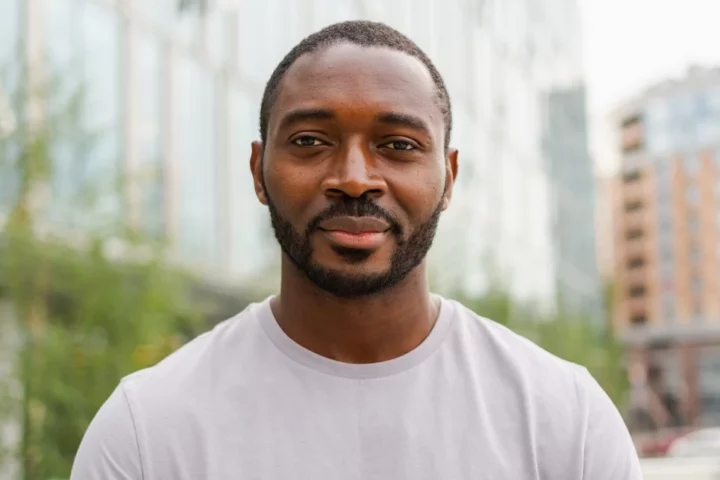Toxic relationships are a familiar concept, but what defines them? To understand toxicity, it’s important to first identify the traits of a healthy relationship. Healthy relationships are built on mutual trust, respect, and a shared sense of belonging. They foster open communication, empathy, and emotional support, allowing both partners to interact as equals. In such relationships, boundaries are respected, and individuals maintain a positive sense of self.
In contrast, toxic relationships have a damaging impact on self-esteem and emotional well-being. Over time, these relationships ensnare individuals, eroding their confidence and ability to discern what is healthy for them. The toxicity manifests through feelings of guilt, blame, and a belief that one must change to improve the relationship. Such dynamics make leaving a toxic relationship incredibly challenging, trapping individuals in a cycle of emotional harm and self-doubt.
Breaking free from a toxic relationship requires deep reflection and professional support. Counseling or psychotherapy can provide insight into the nature of the relationship and offer tools for recovery. This process often demands courage and persistence, as leaving a toxic relationship is rarely a single event but rather a gradual journey toward healing. Addressing the cognitive distortions and harmful patterns that arose within the relationship is essential for regaining emotional health.
Toxic relationships are not exclusive to the vulnerable or insecure; even strong, independent individuals can find themselves trapped. Relationships that start with promise can deteriorate over time due to unresolved issues, unmet needs, or emotional baggage. The intense desire for love can cloud judgment, leading people to endure harmful situations. Unfortunately, the realization of what’s missing—often a sense of self—may come only after significant emotional and personal investments, leaving individuals to contend with heartbreak and regret.
These relationships can have far-reaching consequences, affecting self-esteem, happiness, and overall well-being. They often leave behind a trail of broken hearts and damaged connections. While the person causing harm may carry toxic traits, sometimes the relationship itself becomes polluted by unresolved emotions, unmet expectations, or historical wounds. These dynamics can develop quickly, impacting even the strongest individuals.
Not all relationships are meant to last. Over time, moodiness, frustration, and avoidance can dominate toxic relationships. When emotional detachment occurs, no amount of effort can repair the bond. Staying in such a relationship only leads to greater harm. The healthiest option in these situations is often to let go with grace and self-compassion, allowing both partners to move forward and heal.
What signs should I look for if I’m in a toxic relationship?
It is important to recognise that the relationship is toxic in order to protect yourself from the breakup. Keeping your palm hovering over the self-destruct button is the only way to stay in a bad relationship. Not all toxic relationships are easy to quit, but knowing the signs can help you reclaim your control and draw a clear line between what you accept into your life and what you don’t.
There is a range of toxic behaviour. Everyone and every relationship do some of these things from time to time, but that doesn’t make them toxic. The persistence, intensity, and devastation of a toxic relationship define it. Here are a few of the warning indicators.
It’s an awful feeling. Every single time.
You go to sleep hollow and wake up with the same feeling. You can feel the pain when you see other couples doing their happy couple thing. Why couldn’t you find that kind of love? It certainly can, but you must first clear the way for it to find you. Leaving a relationship is never easy, but remaining in a toxic relationship for too long can undermine any strength, courage, or confidence you may have. You’re stuck once that happens.
You avoid expressing your needs since it’s pointless.
In our relationships, we all have important needs. Connection, affirmation, gratitude, love, sex, and tenderness are just a few of the major ones. When such needs are mocked or neglected, the unfulfilled need will ring out like an old church bell. If your attempts to talk about what you need result in an argument, another empty promise, or charges of neediness, insecurity, jealousy, or insanity, you’ll either bury the need or hate that it continues to be ignored. It’s toxic in either case.
There isn’t any effort involved.
Standing on the dance floor does not imply that you are a dancer, and being physically present in a relationship does not imply that you are investing in it. Separating tasks is sometimes beneficial, but as with many good things, too much is bad. When no attempt is made to love you, spend time with you, and share the things that are important to you, the relationship ceases to give and begins to take too much. When someone says, “Well, I’m here, aren’t I?” the only thing you can say is, “Yeah.” But maybe it would be better if you weren’t.’
Toxic relationships may be draining and perplexing. You can acquire efficient techniques to deal with toxic dynamics through online counselling for toxic relationships if you wish to break the toxic dynamics. You will get clarity and develop the skills necessary to respond to a toxic relationship in an empowered manner as a result of the process.
Safely Ending Unhealthy Relationships
Relationships are an essential part of human connection, offering love, companionship, and support. However, not all relationships remain healthy, and some can become toxic or harmful over time. Recognizing the signs of an unhealthy relationship is the first step to regaining your well-being. Indicators include emotional harm, such as controlling behavior, constant criticism, or isolation, and physical harm, such as hitting or violating boundaries. These patterns can damage mental health and overall quality of life, making it critical to take action.
Ending an unhealthy relationship can be daunting due to fears of being alone, concerns about the time invested, or emotional attachments. However, staying in such a relationship often leads to long-term harm. Breaking free requires careful preparation and a focus on safety. Creating a plan, identifying a support system, and documenting instances of mistreatment are vital steps. If there’s a risk of physical harm, consider ending the relationship in a public space or using alternative methods like phone or text.
Steps to End the Relationship and Move Forward
Before initiating the breakup, establish a safety plan tailored to your situation. This may include arranging transportation, changing routines, or setting aside emergency funds. Inform trusted friends, family, or a counselor of your plans for additional support. If needed, document abusive behavior to protect yourself legally or socially.
When ending the relationship, be direct and firm. Keep the conversation brief, whether face-to-face or through text, and avoid sharing post-breakup plans. Once the relationship ends, maintain boundaries and avoid contact to help both parties move on.
Post-breakup, focus on healing by exploring new hobbies, reconnecting with loved ones, and seeking therapy if needed. Addressing lingering sadness or intrusive thoughts with a professional can aid in rebuilding your emotional well-being. Remember, leaving an unhealthy relationship is an act of self-respect and a crucial step toward a healthier, happier future.




